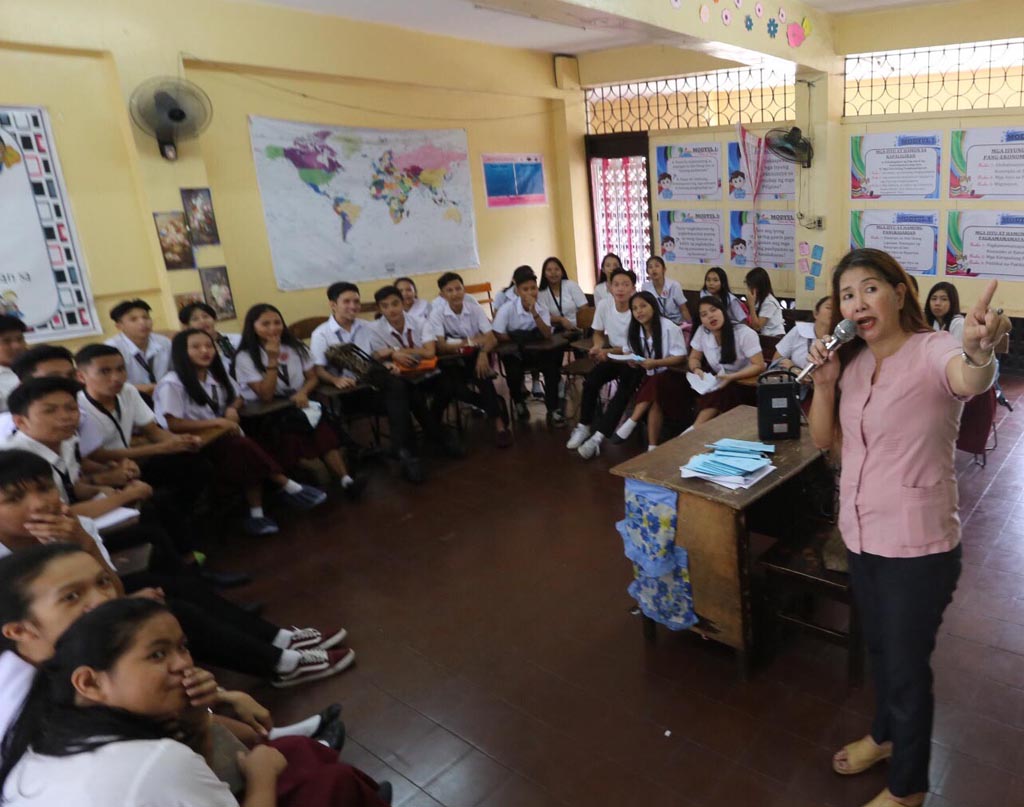Marcos orders DepEd to improve PH students' low int'l assessment ranking
President Marcos has tasked the Department of Education (DepEd) to immediately take necessary steps to improve the Philippines' ranking in the international students assessment which remains at a low level.

During a sectoral meeting in Malacañan on Thursday, Jan. 11, Marcos ordered DepEd to improve the level of proficiency in Mathematics, Reading, and Science in terms of scores in a bid to achieve a better ranking in the Program for International Students Assessment (PISA).
"Nag-present po tayo sa Pangulo ng ating (We presented to the President our) ways forward because the theme really is how do we improve, not only our PISA performance but the overall performance of our learners in basic education," DepEd Undersecretary Michael Poa said in a Palace briefing.
In order to do this, the Education department has to address the factors leading to the low scores such as the use of digital devices, language use at home, teachers specialization, and bullying among others.
The President also told them to see possible enhancements on the school-based nutrition programs for students.
According to DepEd Undersecretary Gina Gonong, the Philippines is at level 1A-1B in terms of proficiency, and it is looking to move to level 2 and to further increase the proficiency level in the long run.
While Marcos was not disappointed with the country's current status in its proficiency level, Gonong said he was bent on pushing for improvements and wants them to immediately act upon challenges preventing the Philippines from improving its ranking.
"Actually hindi naman disappointment kundi 'yung push na we need to keep working hard so that we improve our performance in PISA, pero hindi nga lang PISA kundi performance talaga ng mga estudyante natin as a whole (Actually it was not disappointment, but the push that we need to keep working hard so that we improve our performance in PISA, not only in PISA but the performance of our students as a whole)," the DepEd official said when asked whether or not the President was disappointed with the ranking.
"Kaya talagang si President ang instruction niya tutukan natin 'yung teacher support and teacher quality, 'yung bullying sa school at saka 'yung nutrition (So the President instructed us to focus on the teacher support and teacher quality, bullying in schools, and nutrition). So it's all about what we can do moving forward so we can improve the performance of our students," Gonong added.
She noted that the immediate target of the department is to improve in terms of proficiency level and the scores of students until the country reaches the minimum level of proficiency.
"Alam naman natin na hindi ganoon kabilis ang pag-increase ng proficiency level (We know that proficiency level will not increase immediately) – it takes years bago talagang ma-develop ang mga estudyante natin (before our students really develop). So, we’ll just have to continue doing the reforms that we have started in this administration," she said.
The DepEd official explained the significance of the PISA ranking, saying it shows the level of students' ability to apply the knowledge and skills they learn from school to real-life scenarios.
"Students can use the knowledge and skills that they learn from schools in real life situations. So kapag tumataas ang performance natin sa PISA, ibig sabihin mas handa ang mga estudyante natin para sa mga real-life situations (So if our performance in PISA improves, that means our students are prepared for real-life situations)," Gonong said.
From 2018 to 2022, there has only been a slight improvement in terms of scores but the status remains at a low level, Gonong also said.
The next assessment will be in March 2025.